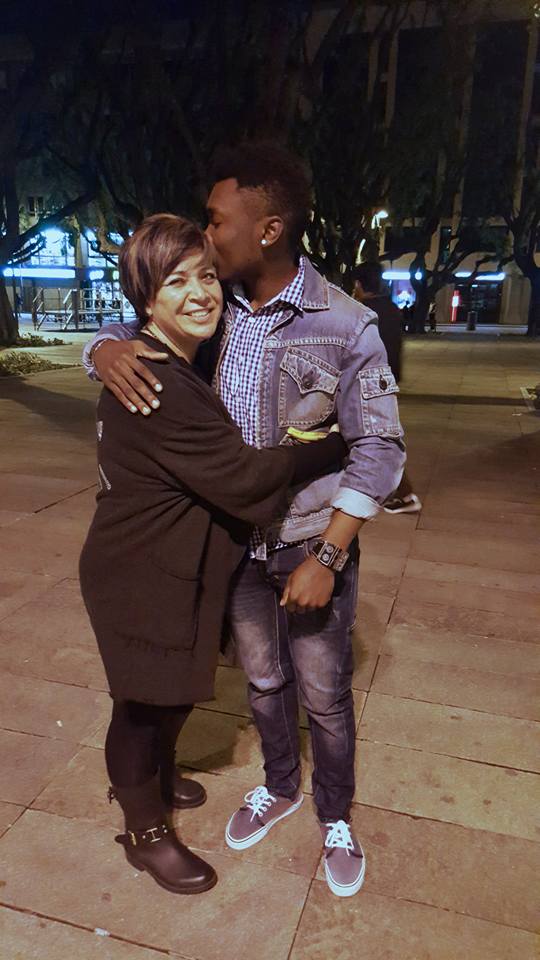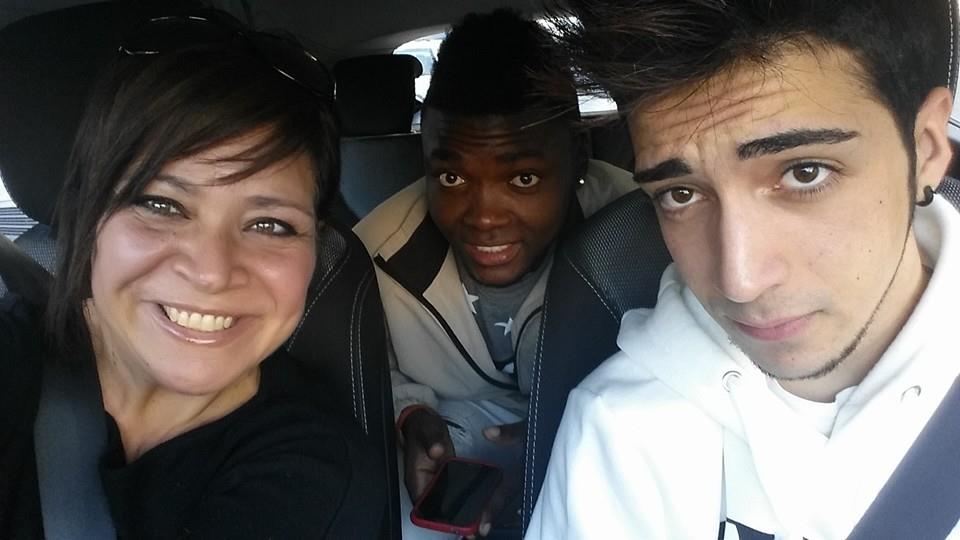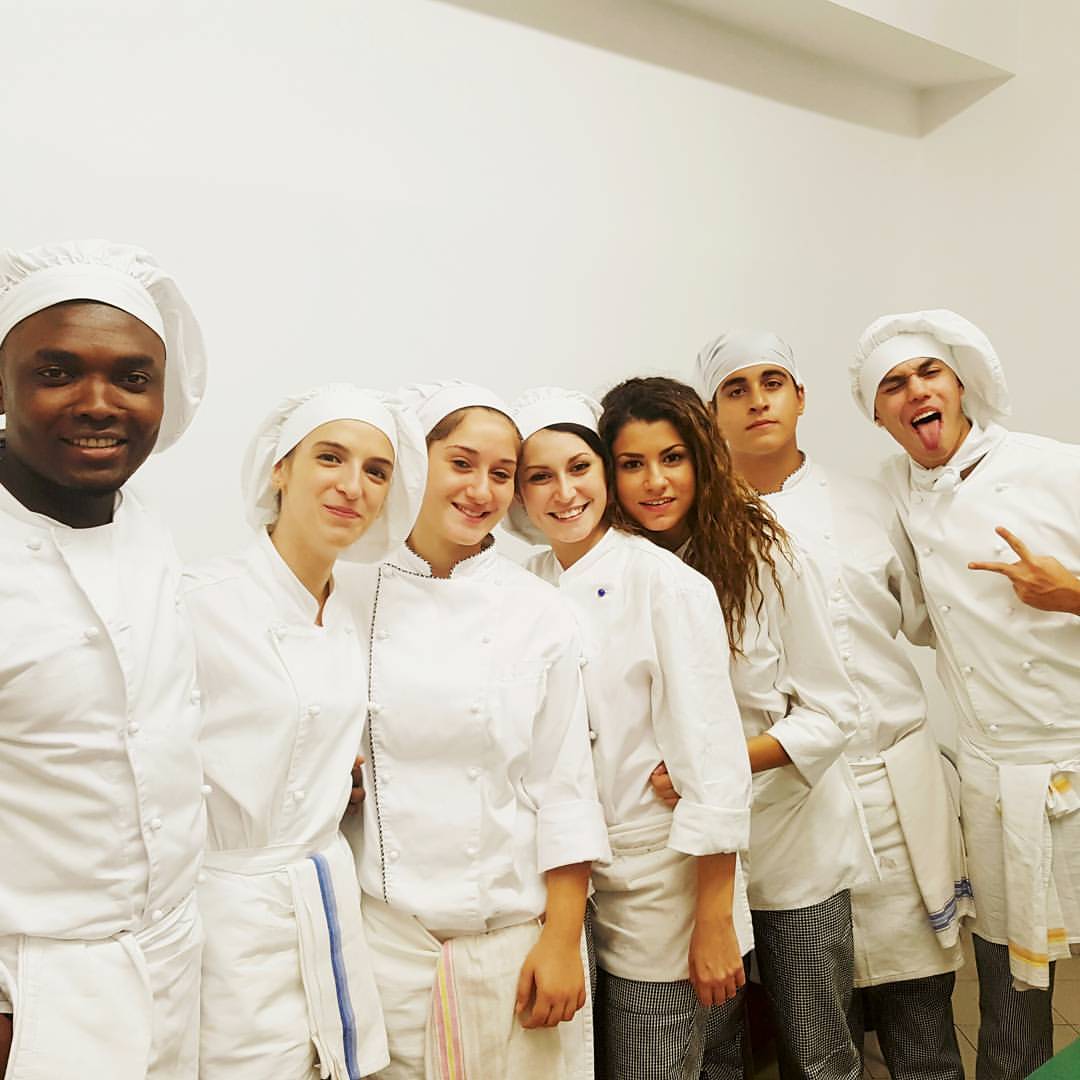“You don’t foster an [unaccompanied] child because you want to be a good person, you foster a child because you really want to make that person a member of your family.
Yvan Djoko Vinti, 18, originally from Cameroon, arrived in Sicily during the summer of 2014. The boat he travelled on, together with 500 other people, was one of the first to hit the port of Messina in Italy. Apart from leaving behind poverty and alleged government abuse at the age of 14, Yvan also left behind his family, making him an unaccompanied refugee minor. For the last three years, he has been living with his foster mother, Dionella, and his Italian brother, Marco in Italy. But he has not lost his hope of seeing his natural brother, Hypolite, again.
Like the 63,300 unaccompanied minors registered in 2016, Yvan arrived to Europe after a long, dangerous and unpredictable journey. According to the International Organisation for Migration (IOM), more than 3,770 migrants died trying to cross the Mediterranean in 2015. Some escaped war, others from famine, natural disasters or persecutions.
Yvan explained that before coming to Europe, he and his older brother travelled across North Africa for two years.
“We escaped hunger, poverty and abuses,” Yvan said. “I had lived in a farm with my grandparents when me and my brother went travelling. We thought that maybe Nigeria, Algeria, Tunisia or some other places would have been better than what we had left in Cameroon but this was not the case.”
The little amount of money that Yvan and Hypolite had could not pay for both of them, so Yvan embarked on the journey to Europe without his family.
“Living in a farm in very poor conditions had taught me that I had to be strong, no time for fear,” he said. “Africans can never be young, they don’t have a childhood. Underage and adult are two words that I learnt here in Europe.”
A welcoming in Italy
Religious organisation, Spirito Santo, based in the Italian city of Messina, welcomed Yvan and 14 other unaccompanied child migrants in 2014. Spirito Santo does not receive any financial help from the government and relies only on the work of volunteers. Yvan was greeted by on Verzano Maravillas, a nun working for the organisation. The nun said:
“The hospitality that we give to refugees is a concrete answer to the call of Pope Francis about opening our houses’ doors and to reach out to the young and abandon ones.”
Dionella, Yvan’s foster mother, was volunteering with Spirito Santos when he arrived.
“I was at the centre and I was trying give some help,” she explained. “I was not sure of how to do so but I was there and that was what mattered.”
Dionelle said she spent one month with Yvan’s group, providing them with Italian lessons and trying to communicate through basic French language skills, as well as baking cakes for them.
“With Yvan I felt an immediate connection and I was not surprise to see that he had sent me a Facebook request just a few days after we met. I was heart broken when they told me that the children were to be taken to an accommodation centre for minor asylum seekers in another part of Italy the day after. I gave Yvan a phone and I promised to stay in touch”.
Fighting for unaccompanied minors
Dionella spent weeks fighting with the Italian government for custody of Yvan. It was only in March 2017 that Italy started having more defined laws regarding unaccompanied migrant children and teenagers. From 2017, every unaccompanied minor arriving in Italy will be assigned a guardian, eligible for public school, national health and foster care. Italy has become the first country in Europe to implement such a scheme.
When Dionella finally obtained custody of Yvan, she said that she found it difficult to figure out how to support her new son.
“There were times when Yvan would laugh and make jokes, others when he would go quiet and thoughtful. During these moments I would feel pain in my heart because I was not sure of how to be supportive, but eventually I learnt that he only needed time and all our love.”
One year after arriving in Europe, Yvan had still not heard from his brother.
For over one year after he arrived in Europe Yvan had not heard back from his brother Hypolite. When he finally did hear from him, things started to change for Yvan.“Italy started feeling like home when I heard from my brother. I don’t know how to describe the way I felt when I heard his voice on the phone; he was alive. I am always thinking about him and I know that if I had the chance to talk to him after one year, this will happen again.”
Dionella explained the joy that she felt when the two brothers finally spoke to each other: “I still remember Yvan’s voice and hands shaking when he talked with his brother on the phone. We have hope that this will happen again.”
Adapting to a new life
During his time at an accommodation centre in Potenza, Italy, Yvan was given the chance to begin learning Italian. However, his desire to learn the language was only strengthened when Dionella and her son, Marco, came into the picture.
“I think that you get close with the people who make you laugh. Talking with Dionella on the phone was so much fun. She spoke this broken French and I hardly spoke Italian at that time but we managed to understand one another.”
Yvan now goes to hospitality school and plays lot of sports. As we walked through the windy roads of Messina, a number of people greeted him with familiarity. He explained how much things have changed since his first few months in Italy:
Marco said that his relationship with Yvan has changed over time as well. While Yvan was shy at first, making it difficult to communicate, they now feel like brothers and Marco said it is as though “Yvan has always been here”.“I was called monkey and other mean words at first. We were one of the first boats arriving in Messina and people where not used to black people. But I feel that things have changed a lot in only three years. Marco has helped me a lot with integration.”
Dionelle adds: “You don’t foster a child because you want to be a good person, you foster a child because you really want to make that person a member of your family. It is very important to spend time with him before making this big choice and be sure that you have intention to treat him like your child.”




